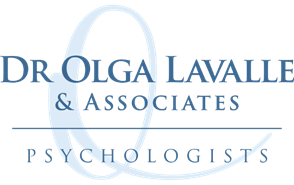Everybody will experience grief at one stage in their lives, as it’s a natural response to loss, and includes emotional, cognitive, physical, behavioural and spiritual reactions. No one theory captures the grieving experience of everyone and that is okay.
But I want you to think about why is it that following death everybody asks whether you need to speak to a professional?
Is it because people think there’s a timeline for grief?
Is because people are scared of grief?
Is it because people think they have to make you feel better?
Is it because some people think there is a right and wrong way to grieve?
Grief Theories
Five Stages of Grief
According to Elizabeth Kübler-Ross (1969), there are five stages of grief – shock/denial, anger/resentment/guilt, bargaining, depression, and acceptance. Her work with dying patients has faced widespread criticism for suggesting that the grieving person must move through these five stages to successfully attain ‘recovery’ or ‘closure.’ The criticism lies mainly in the seductive promise of an ‘emotional promised land’ by oversimplifying a complicated process.
The Dual Process Model of Grief
Stroebe & Schut (1999), describes grief as a process of moving between emotion-focused coping and problem-focused coping. With emotion-focused coping, the individual uses strategies to manage their negative emotional feelings. With problem-focused coping, a person focuses on the many external adjustments required by the loss and addresses the issues in the many ongoing life demands.
Other Perspectives
Worden (2008) says that grieving is an active process that involves engagement with four tasks:
- accepting the reality of the loss;
- processing the pain of grief;
- adjusting to a world without the deceased (including both internal, external and spiritual adjustments); and
- finding an enduring connection with the deceased while embarking on a new life.
Others have said grief is influenced by your ability to make sense of the loss, the type of relationship you had with your spouse, finding a benefit such as growth in your character, and the way the deceased died.
Embracing Grief
On 19 April 2014, I suddenly became a widow. People may have thought that knowing the theories of grief would make it easier for me. But on that day, why would I be thinking about the theories? Instead, I threw away the theories and started to embrace and experience grief for what it is.
What I learned about grief?
- There is no timeline for grief; facing it and dealing with it makes it easier to take the next step
- We grieve for the rest of our lives and learn to live with it.
- Grief is not a sprint, it’s a marathon; little by little, step by step.
- In my practice, clients are still concerned about the stages wanting to know where they are at. No there are no stages. People are concerned about whether their reactions are normal and are they coping. Everyone’s reactions are different, and it’s important to explore with clients why they think they are not coping.
- Tears will flow at different times for the rest of your life.
- Moving on is not forgetting your loved one, how can people even think that? That special person was physically in your life, and now they live in your heart with memories no one can steal.
- Just as we are all different, we grieve differently, and there is no right or wrong.
- People can keep their distance from us because they don’t know what to say. We don’t want them to say anything but just listen.
Grief is a natural response to loss, don’t worry about working out whether your grief is normal. Allow yourself to go through the process because this is the price we pay for love.
We continue to adjust to life living without our loved ones. To read more about my 12-month journey with grief, my book “The New Normal: A Widow’s Guide to Grief” is available from www.awidowsguidetogrief.com/OrderBook
If you need help adjusting to your New Normal, we at Dr Olga Lavalle & Associates are here to help. Give us a call to find out how.



